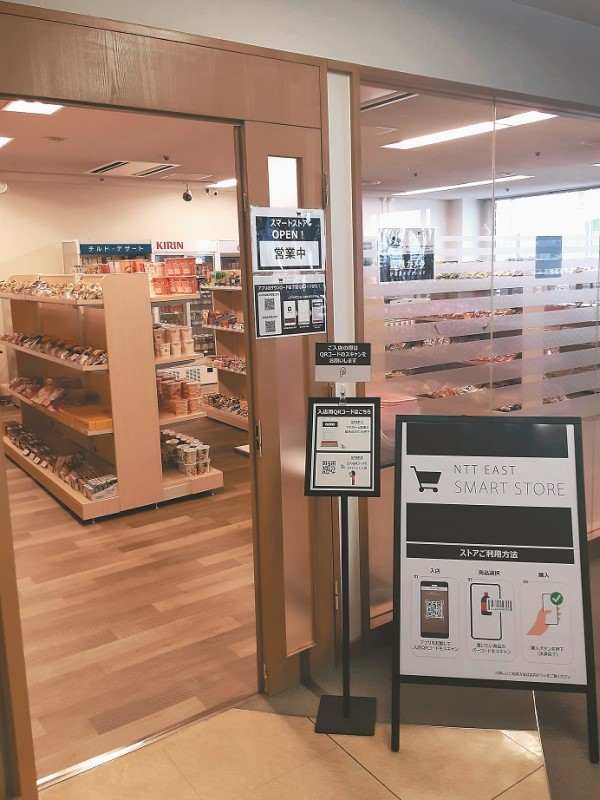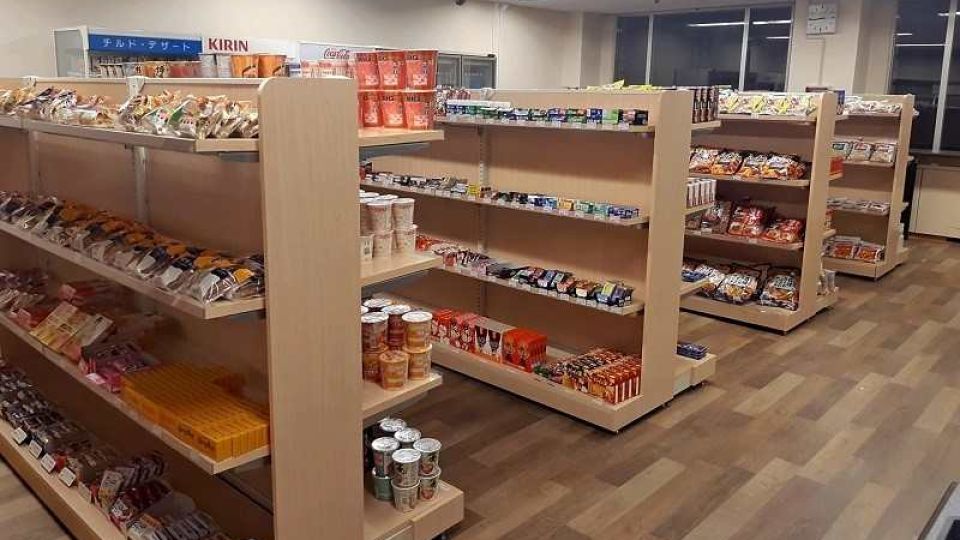July 21, 2022
TOKYO – NTT Group is set to kick off full-scale operations of a nationwide series of small stores featuring an unmanned payment system that allows customers to shop with their smartphones.
The system is intended for use at shops located inside companies for employees there, locations at hospitals and schools as well as at stores in rural areas where the workforce is in decline.

NTT East’s unmanned shop for its employees in Sapporo
NTT Group aims to have the system set up at 200 stores nationwide by fiscal 2024. A subsidiary of NTT East Corp. will provide the service.
Shoppers enter the store after scanning the QR code on their smartphones at the entrance. After selecting items for purchase, the smartphone camera is used to read the barcode of the product, and the customer pays via credit card or through e-money services that have been set up in advance.
Via this system, stores can reduce the number of staffers working at cash registers and focus manpower on stocking shelves and keeping stores clean.
Requiring fewer staffers makes it easy to operate during later nighttime hours, times for which it’s difficult to secure manpower.
Because customers use their smartphones to make payments, the system does not require the installation of special self-checkout registers, making it easier for small stores to take advantage of the system.
The group is already providing the system to seven shops.
An NTT store for employees has transitioned to unmanned operations with the system having reduced the number of staffers, allowing it to extend business hours. Consequently, sales have increased and profits have improved significantly.
Based on the purchasing data of customers, artificial intelligence can analyze such factors as the number of items in stock and the weather, and advise the store on the appropriate amount of items to order.
It is also expected to send notifications on which items are selling well — something that could likely lead to a reduction of food loss — as the number of discarded unsold items can be diminished.
Unmanned stores are expanding, driven by the growing need for non-contact services because of the novel coronavirus pandemic. FamilyMart Co., a major convenience store chain, has partnered with Japan Post Group to open stores within post offices nationwide, and East Japan Railway Co. has also introduced unmanned shops at its station buildings.
NTT Group is focusing on expanding its business for corporate customers by utilizing its expertise in the telecommunications business, as its fixed-line phone business is shrinking amid the growth of mobile phones and a declining population.

